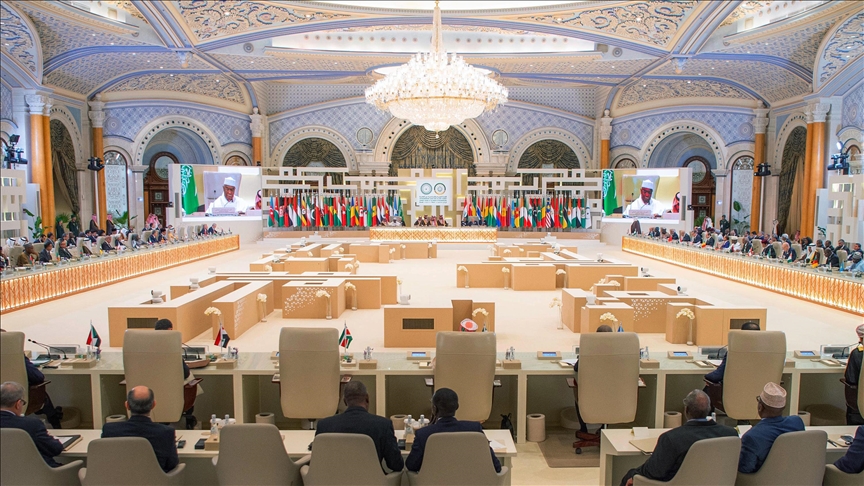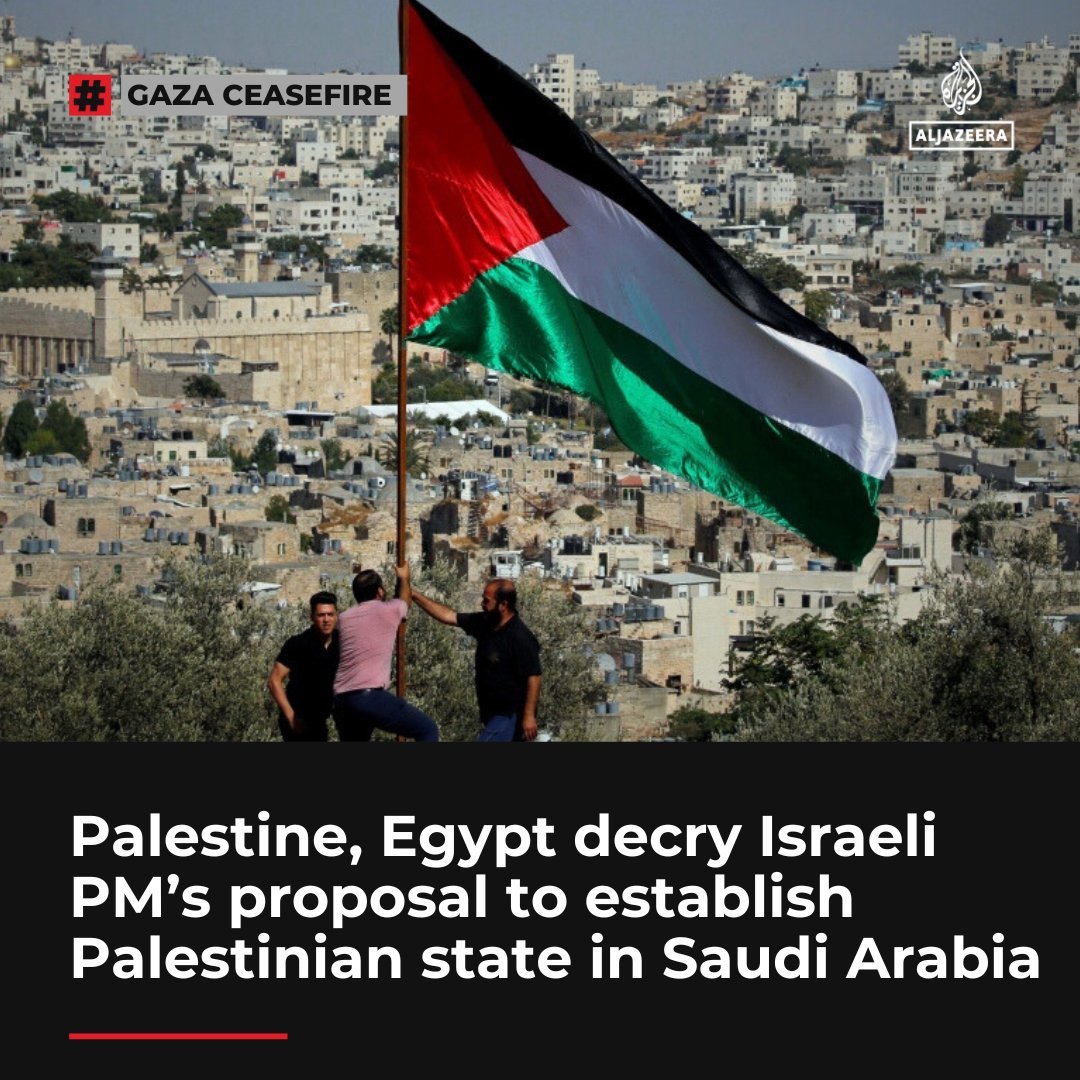Arab countries strongly condemned Israeli Prime Minister Benjamin Netanyahu’s statements suggesting the establishment of a Palestinian state in Saudi Arabia.
In an official statement, the Saudi Foreign Ministry reaffirmed its “categorical rejection” of such rhetoric, emphasizing that “the Palestinian people have a right to their land, and they are not intruders or immigrants to it who can be expelled whenever the brutal Israeli occupation wishes.”
The statement said, “This extremist, occupying mentality does not understand what the Palestinian land means to the brotherly people of Palestine,” asserting that Israel “does not think that the Palestinian people deserve to live in the first place.”
The Qatari Foreign Ministry said in a statement that Netanyahu’s statements are “a flagrant violation of international law and a blatant infringement of the United Nations Charter.”
The ministry affirmed Qatar’s full solidarity with Saudi Arabia and reiterated its “categorical rejection of calls for the forced displacement of the brotherly Palestinian people.”
In a statement, Jordan’s Foreign Ministry spokesman Sufian al-Qudah said, “The Israeli government continues its provocative policies and statements that undermine the sovereignty of nations and the principles of international law.”
He stressed Jordan’s “absolute rejection of these provocative statements, which reflect an exclusionary and inciting ideology hostile to peace and contribute to further escalation in the region.”
The Foreign Ministry in Muscat, in a statement, reaffirmed “Oman’s firm stance in support of the establishment of an independent Palestinian state on its full sovereign territory in Palestine, with East Jerusalem as its capital, based on the 1967 borders.”
The Bahraini Foreign Ministry, in a statement, expressed the kingdom’s “strong condemnation and denunciation of the irresponsible Israeli statements regarding the establishment of a Palestinian state on Saudi territory,” considering them a “blatant violation of international law and the UN Charter.”
The ministry reaffirmed “Bahrain’s full solidarity with Saudi Arabia and its unwavering support for its security, stability, and sovereignty.”
The Iraqi Foreign Ministry issued a statement expressing its “firm rejection of these remarks, which constitute a blatant violation of Saudi Arabia’s sovereignty and an attack on the legitimate rights of the Palestinian people, in addition to contradicting international law and the UN Charter.”
The ministry emphasized “Iraq’s full solidarity with Saudi Arabia and its unwavering stance in supporting the security, stability, and sovereignty of nations.”
The Yemeni government, in a statement issued by the Foreign Ministry, condemned Israel’s arrogant and provocative remarks against Saudi Arabia, describing them as “a dangerous escalation that threatens the stability of the entire region.”
The ministry warned that “Israel’s arrogant statements not only target Saudi Arabia but also represent a serious escalation that endangers regional stability as a whole.”
The Mauritanian Foreign Ministry, in a statement, described the Israeli prime minister’s remarks as “irresponsible,” adding that they “constitute an unacceptable violation of international norms and laws and a provocation that threatens the security and stability of the region.”
Arab League Secretary-General Ahmed Aboul Gheit firmly denounced “in the strongest terms” the Israeli prime minister’s remarks about relocating Palestinians to Saudi Arabia. He emphasized that “the logic behind these statements is completely unacceptable and reflects a total disconnect from reality.”
Gulf Cooperation Council (GCC) Secretary-General Jassem Al-Budaiwi stated that “these dangerous and irresponsible statements confirm the approach of the Israeli occupation forces in their lack of respect for international laws and treaties, as well as the sovereignty of nations.”
Palestinian resistance movement Hamas strongly described Netanyahu’s remarks as “hostile toward Saudi Arabia and the Palestinian people, reflecting an arrogant approach and a colonial mindset that disregards the historical rights of the rightful owners of the land.”
On Thursday, Netanyahu suggested that Palestinians should establish their state in Saudi Arabia rather than in their own homeland, dismissing any notion of Palestinian sovereignty.
“The Saudis can create a Palestinian state in Saudi Arabia; they have a lot of land over there,” he said.
Earlier, on Feb. 4, US President Donald Trump said Washington would “take over” Gaza and resettle Palestinians elsewhere under an extraordinary redevelopment plan that he claimed could turn the enclave into “the Riviera of the Middle East.”
His proposal was met with wide condemnations from the Palestinians, Arab countries, and many other nations across the world, including Canada, France, Germany, and the UK as reported in Anadolu.











